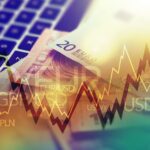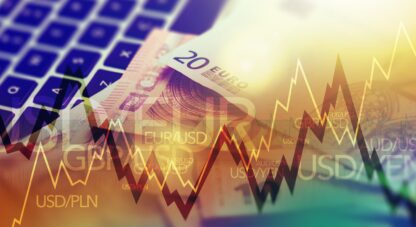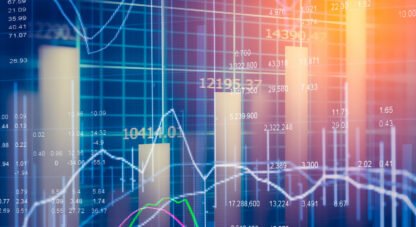Podcast: Play in new window
- Who Does Xi Want To Win The U.S. Election?
- Elections In Taiwan May Be More Important Than Everywhere Else
- Learn To Expect The Unexpected & Enjoy The Ride
David: “The average yield on government debt is still creeping higher, now 3.1%. Last time we talked about it, 2.96%. By midyear the average is going to be closer to 3.25%. By year-end, 3.5%. And frankly, that may end up being conservative. But if you pencil that out, that’s an additional $160 billion in interest payments in addition to the $1 trillion already in queue. So not unreasonable to think that 2024 is the year where we maybe even see one and a quarter trillion in interest payments on the national debt. I think about the negativity that that feeds back into the economy.” –David McAlvany
Kevin: Welcome to the McAlvany Weekly Commentary. I’m Kevin Orrick, along with David McAlvany.
Well, for the New Year’s there was football on. And we watched the Alabama-Michigan game. I don’t think you watched much football yesterday, did you?
David: I was reading for the Commentary.
Kevin: Oh, doggone it. I guess I should have been doing work.
David: You mentioned the Bama game.
Kevin: Yeah.
David: And I thought, “Well, that could have been fun.”
Kevin: It actually was a good game against Alabama and Michigan. But, Dave, there was a commercial that played several times on that game, and it really hit home. Because you and I, we have kids. And we’re wondering how in the world, with all this inflation and the debt, debt is really just money that’s already been spent, taken from the future put into the past.
And this commercial really hit home, it showed people in the 1950s. It says in the 1950s you’d get a job, you save a little, you take out a mortgage, you buy a house. Then it shifted to the 1970s, same thing, get a job, save a little, take out a mortgage, buy a house. And then the 1990s, same thing. Got to the 2020s, and it said, “Get a job, save a little, apply for a mortgage, get a second job, get some roommates, then rent a house.”
And the way the commercial ends, it says, “Realize the only generation that’s going to fix this, is yours. It’s time to update the system.” Now, it doesn’t matter what the product was. These guys stated the problem very, very well.
David: And that’s a problem that a lot of people care about. If you’ve got kids, if you’ve got grandkids, if you’re thinking about the future and want to know what the implications of this present moment are, there’s a generation that’s been priced out. Something has to change.
Kevin: Right.
David: Something has to change. Now, the suggestion in those ads is that there’s some sort of a reset. And that technology will make all the difference in the world. Perhaps, perhaps.
Kevin: I’m angry, Dave. Because I look at that and I’ve got kids that would like to buy a house, and I’m looking at the market frenzy, the speculation this last year. And a lot of that was fueled and fired by a Federal Reserve that basically said, “We don’t care enough about inflation to not love the markets right now.”
So we’ve seen the markets just explode. Granted, they were digging their way out of a very big 2022 hole. But nonetheless, what are the elites basically telling us at this point, that we’re just going to print money and run the market?
David: Well, the idea is that there’s still money on the sidelines, therefore prices can continue to go higher.
Kevin: Right.
David: And up to $5.9 trillion in excess liquidity if you count money in money market mutual funds and bank deposits and excess COVID cash. We had a spectacular year-end rally.
Kevin: Right. In the markets, in the equity indexes.
David: We had a spectacular year-end rally. And that helped get primary US equity indexes back to positive territory, finally erasing the 2022 losses.
Kevin: Mm-hmm.
David: Well, I should say, at least for the Dow Jones industrials, they did get to positive territory. The NASDAQ Composite gained 43%.
Kevin: Mm-hmm.
David: The NASDAQ 153.8%. It was an everything rally. It was an everything short squeeze, frankly.
Kevin: Mm-hmm.
David: Bonds broke what was about to be a rare three-year losing streak. And the shocker is that the rally in all assets was in motion prior to Powell’s pouring fuel on the flames, taking already loose financial conditions to the loosest since prior to the entire tightening cycle. And yet he claims that we have very tight financial conditions, that’s the backdrop.
Kevin: But gold was watching? Yeah. Gold was watching, wasn’t it, paying attention?
David: Yeah. The gold market picked up on that point. And I think as barometer of irresponsibility, as a weather vane for policy blunders, gold finished the year with a respectable 13.8% gain. If you’re looking at the last five years, five years annualized returns of 9.98%. Except for a few soft commodities, if we’re talking about cocoa, coffee, rice, gold stood out as the winner in the hard asset space.
And that wasn’t the case in other places. Crude was lower by 12%, natural gas was down a full 43.8%, nickel came in dead last, shedding 46%. This is, I think, noteworthy. Industrial metals were weak overall. Copper eked out a 1.97% gain for the year. But there were industrial commodities, which, again, if you’re thinking about the global macro picture, you do have to pause and say, “What does that mean?”
Kevin: So many people just watch the Dow. And it took all the way—talk about the Santa Claus rally—it took all the way to December 28th to beat the high that was set back a year before, in January 5th, 2022—almost two years before.
David: Three days late. Yep. It could have been Santa Claus delivered the present, but of course the markets are closed on the 25th. So—
Kevin: Right.
David: Yeah. New all-time highs, the Dow Jones Industrial Average, December 28th, finally beat the January 5th, 2022 record level. Keep in mind, the transports and the utilities, the Dow Jones Transportation Average, and the Dow Jones Utilities Average, they remained below their prior peak levels. In Dow theory language that would be a non-conformation, so not a full recovery everywhere.
In fact, even the S&P 500, with a strong weighting to the Magnificent Seven, also failed to fully recover the peak levels. It was close. It gained 24% for the year, 2023. But still, if you go back in time, it’s January 4th, 2022, 4,818, that level stands as the all-time high. It was not taken out in 2023.
Hard to fathom that, after such a great year, the returns over a two-year period are still negative. And yet, what we find is there’s a fear of missing out. Far more than there is a fear of a market top.
Kevin: And that FOMO was actually starting before Powell pivoted, a couple of months before Powell actually made his pivot?
David: But for all of these indices, October 27th was the key date. That was the turning point higher. Momentum picked up in mid-December, then all of a sudden it’s like, man, everything got into gear, the Powell pivot. If rates are going lower, then every terrestrial asset can again go to the moon.
So looking at the signature of the cross asset class moves, most of what we had was an unwind of hedges, short covering, short squeezing. And then towards the end, that late in the move uptick in organic buying by retail investors. And I say poor folk, I really do lament the fact that it’s always at the end of a move, when someone finally has the full strength of argument, and the market just says, “You have to do something, you’ve already sat this out.”
And whenever you feel compelled to do anything, it’s typically the wrong time. Whenever you feel repulsed to do anything, it’s typically the right time. You see this, investors can’t sell at the top, and they always sell at the bottom. And as you get higher and higher and higher—this is the nature of FOMO, you just want to buy. If you can, you buy more. If you don’t have money, then you buy it on the margin. So when you see a reversal, typically it’s very harsh. And I say poor folk, because it’s the retail investor that comes in last.
Kevin: Well, and it’s called the markets for a reason. The markets are really just the price that somebody’s willing to pay. But you have to have that somebody who’s willing to pay. And the retail investor, it’s a sad commentary on Wall Street, but Wall Street already knows that the guys who’re going to hold the bag, are not necessarily the inside investors, they’re going to be the retail guys?
David: Yeah. I think, coming back to that point, it’s worth keeping in mind that despite a pivot in December on interest rate policy, there’s still ground to be made up in order to exceed the 2021, 2022 peak levels. In the case of the mid-caps and small-caps, the records were November 2021, okay? We did not get past those levels.
For that matter even NASDAQ, NASDAQ had a huge year, ripped higher on that AI-sponsored run for the finish line. And it too failed to take out the November 2021 highs. Now, probably a January event, we’ll see that shortly would be my guess. But again, it’s noteworthy that with all of that energy, even in the index that had the greatest gains, it didn’t take out the old highs. It’s worth keeping in mind.
Let’s see how asset allocators enter the fray in the new year. Will it be cautious on valuations, reasonably so? Or bold, based on an encore performance, and again there’s liquidity on the sidelines. It’s going to come in. If I had a dollar for every time that an analyst said, “Well, there’s liquidity on the sidelines. It’s going to come in?”
Liquidity is a really funny thing. It’s there, and yet it doesn’t always have to be applied. I’ll never forget the Plaza Hotel coming to market in the 1930s. And there was still liquidity, even though there was bank failures, and the shock to the financial markets, there was still liquidity. And that hotel offered at $100,000 did not sell for $100,000, even thought the revenue from the restaurant itself exceeded $100,000, just the restaurant. You’re talking about the whole shebang—
Kevin: They couldn’t sell the whole building, for what the restaurant made in a year?
David: That’s right, one times revenue.
Kevin: Yeah.
David: You couldn’t sell the restaurant and the entire hotel. So liquidity’s there, but it doesn’t always move.
Kevin: Right. Listener beware. For the person listening to the program right now, if your stockbroker calls you and says, “Hey, I want to talk to you about the last year,” say, “Tell you what, whey don’t we talk about the last two?”
David: One year’s performance is always intriguing. It’s with context that you begin to see some trends. And fascinating that after spectacular returns in 2023, if you’re looking on a two-year basis, most of your indexes are still underwater.
Kevin: Yeah.
David: Right? When you lose a lot, NASDAQ lost a third, you have to make back more than a third. The S&P lost 19%, you have to make back far more than 19%. The Dow lost—
Kevin: So a quality manager? Yeah. Quality management is going to say, “Hey, we’re up now, we’re not down over the last few years?”
David: Yeah. NASDAQ 100. And again, this is the narrower subset of names. It did stretch to new all time highs. And it hit those, again, same as the Dow Jones Industrial Average, hit new all-time highs December 28th, stretching valuations in aggregate for the NASDAQ 100 to over 30 times, that’s on a trailing basis.
Kevin: Uh-huh.
David: Now, that’s the richest-ever price earnings multiple. But as we discussed in recent podcasts, it is the richest ever price-to-sales ratio.
Kevin: Right. So things are very, very expensive. Yet, these other indexes like the Russell 2000, you can go back and still see severe losses there.
David: It’s that they didn’t improve quite as much. Fascinating. The prices did improve somewhat, and earnings did improve somewhat. So for the Russell 2000, the Dow Jones Utilities, there’s two indexes that are trading at improved peaking multiples. Look at the Wall Street Journal year-end reporting on P/E and yields, and the Russell 2000 is a small-cap index, it’s still 16% below its 2021 peak price.
Kevin: Right.
David: So with an improvement in earnings, its P/E multiple improved. The bottom line is that performance was focused in a narrow number of names. It was not equally distributed. And I can’t find the statistics, so this is an approximation, but 70% of the S&P 500 underperformed the index, which was a record. That was Apollo Group, 72%, that’s it.
There was also a large number of names that lost money last year in the S&P 500. But this gets to the heart of one Financial Times article that I read over the holidays, which is, “Returns for Thee, Not for Me. One Weird Looking Bull Market.” And again, it’s this dispersion of returns. You had a couple of names that were up 100, 200, 300%. Others that were very lackluster. And some still that lost value in 2023.
Kevin: That’s a brilliant title, “Returns for Thee,” but, “Not for Me.” That goes back to the commercial that I was talking about. Our kids are basically going, “Wait a second. You own a house, you’ve done well, you’ve been able to put savings aside. I’d like to do the same thing, thank you very much.” But the question would come right now, with these gains that we saw over the last year, Dave, we’re going to hear in the background that this is a new bull market. Is this a new bull market in equities?
David: Yeah. It’s interesting what happens when a generation loses hope. They will either become far more conservative, grounded, or they’ll speculate.
Kevin: Right.
David: And just say, “What do I have to lose?” And it’s that tinge of despair, that you’d say, “Vegas baby. Come on, it’s not like we’re going to retire. It’s not like Social Security is going to be there, we’ve got to make some real money. And it’s not like saving five bucks out of every paycheck, it’s never going to amount to anything. How will we be able to support ourselves? Roll the dice baby.”
I think that’s the tragic aspect of that commercial, is it gets to the sociological reality. Which is, you’re either going to have a very conservative play, or a very desperate and speculative expression of hopelessness.
Kevin: That’s so interesting that you’d bring that up, because within my own family, over the holiday $40 was spent on Powerball numbers. Now, that same $40 easily could have gone into an ounce, and ounce and a half of silver. But instead it went to Powerball numbers. They all know the math, okay? But you’ve got all the sports gambling commercials.
Event the commercial that I’ve been quoting, I’m not going to name the name of the product that actually is the so-called solution. But the product is just pure, pure speculation. So instead of saving money, let’s go make money—and in most cases lose it.
David: But listen, for the stock market the short-term bias is higher. It’s the long-term bias that’s not at all sanguine. So when we talk about valuations, it’s not as if equity is being overpriced or the valuations being too rich is somehow a trigger for losses. But it does mean that over a longer period of time, over a five- or 10-year period you’re screwed.
That’s what happens when you overpay for something, it will work itself out over time. And you may not feel it today, you may not feel it tomorrow, but if you overpay for something, you will pay that price. And it will hamper your returns, it will diminish your returns. Short term bias is higher, long-term bias is not sanguine, where you have a number of FOMO driven—
I see this in our business even, in the metal side of our business. In the number of FOMO-driven liquidations of precious metals at year end, with a wanderlust for equities. And this is classic investor behavior. You look at the percentage of stocks in the S&P 500 that are now trading over their 50-day moving average, 90%.
Kevin: 90%? Wow.
David: Constitutes a contrarian sell signal, we’re there.
Kevin: Wow.
David: Now, the percentage of stocks trading over their 200-day moving average is less—it’s about 76%, but still in what would be considered an overbought territory. If that latter measure, the percentage of stocks trading above the 200-day moving average, stretches to 90% or more, then now you’re talking about that short-term trading bias being higher in equities, it will have exhausted itself. And now you’re in trouble. Are we talking about one week, two months, six months, by June? That’s less clear, of course.
Kevin: I’m going to repeat the question, Dave. When the listener’s broker calls and says, “Hey, look at the last year, we’re in a new bull market.” Is it?
David: Well, I would just say, if you wanted evidence to engage in that conversation, here’s your reference point. New bull markets are often led by small-caps—most often led by small-caps.
Kevin: Mm-hmm.
David: At least on that basis, you look at the Russell 2000, 16% below its 2021 peak? This is not a new bull market, I would argue. I would argue this is an extended effort to maintain bullish status off the 2009 lows, forming what an investor with a bird’s eye view would describe as a long-term top.
Kevin: Okay. But you have brought up before that there is capital on the side of the market right now that could come in. So if there’s enough FOMO going on, we could probably see an extension of what we’ve seen up to this point?
David: We’ve mentioned this a few weeks back, and I’ve sat in an investor committee meeting not long ago, as we’re talking about private equity allocations for this particular foundation. And again, the notion of liquidity being on the sidelines, the most recent BlackRock report for private capital investments, both private credit and in equity, shows trillions of dollars on the sidelines, ready to put to work.
And the question asked, I thought very intelligently by the folks who write Alphaville for the Financial Times was, “Does more money make for better deals? Or is that the impetus for getting worse deals done?” And I thought, “What? Yeah.”
Kevin: Don’t ever show them your wallet, isn’t that one of the things you basically try to do when you’re buying something?
David: Well, the interesting thing, we’re talking about liquidity as it relates to private capital markets, private credit and private equity. You don’t get paid on the money that you’ve raised until it gets deployed. So how long are you going to sit with that money on the sidelines before you start making stupid deals which come back to haunt you? So that’s an issue.
But liquidity in a broader sense, as long as there is liquidity available to hedge funds—whether that’s from carry trade dynamics or basis trade or the retail investor who can borrow on margin or whatever—the question is, is there a marginal source of fresh capital to drive prices higher in 2024 in the public markets? Where’s the capital coming from?
More on this in a minute. But think about 2024. We’ve got the dollar on a down trend as we close out the year 2023. If we end up with weaker dollar, should that materialize, it’s going to be difficult to draw foreign capital in, to either the US equity markets or the US bond markets. And that may be a really significant theme in 2024—a weaker US Dollar disincentivizing foreign investment and exacerbating our debt funding issues.
Bear in mind we’ve got twice the issuance anticipated in 2024 versus 2023. So a trillion last year, close to two trillion this year, not to speak of all the stuff we have to roll over. The huge bond rally in the fourth quarter took the edge off of what was tallying to be the worst performance in US bonds in 180 years, going back to 1842.
In my view, again for what it’s worth, I could be wrong, I would view this as a relief rally. With many people already losing their ability to imagine yields rising on any other basis than Fed policy preference. Maybe interest rates can rise on the basis of credit concerns, rollover risk, over issuance, a dollar FX value falling out of bed. All of these things can be influences that put pressure on rates to the upside, and uninvert the yield curve.
Kevin: And I’m so glad we can do this, Dave, because you were in the business during this period of time. I remember the dot-com bubble that was occurring in the late 1990s. And speaking of commercials, I’ll never forget the commercials in January of 2000 on the Super Bowl. It was January or February, I can’t remember whether the Super Bowl was early February that year or not.
But the commercials were almost mocking anything that had any kind of sense. People were making money hand over fist in dot-com types of stocks. By March of that year, people had had their heads handed to them. It feels a little like this right now. You feel that speculative frenzy, a lot of it’s based on technology, Dave, whether it’s AI or some other technology. It feels like 1999.
David: Fascinating, though—that AI emphasis, because AI’s not new. It’s not like AI was invented in 2023. We were asking Siri and Alexa questions long before ChatGPT was launched. We already had iterations, we just had one more popular expression.
Kevin: Yeah. Amazon’s gotten too good at telling me what I need to read next. My wife says, “Stop. Just stop.”
David: Well, whether it’s the year 2000 or 2007, problems emerge. And there’s a market reality that’s embraced. Think of late 2007, you had the August selloff, a massive selloff. And then a rebound into October. And we actually set new highs in October 2007. And so there’s problems, obviously the subprime thing is falling to pieces. The market recognizes there’s an issue. But you get some support, you get some momentum.
And the reason to be dismissive in the late fall of 2007 was performance in the equity market. That was the primary reason that you could be dismissive of the problems in subprime. You have to say, “Come on, you’re looking at the aggregate wisdom of the markets here. Obviously it’s not that big of a deal.” And yet we’re rolling into—immediately thereafter, after setting new all-time highs in October 2007—we roll right into the global financial crisis.
So here we are, speculative frenzy in 2023, centered on IT. Albert Edwards, economist at Société Générale, quoted in Hard Asset Insights a few weeks back, noted that 2024 begins with the US tech sector accounting for as much of the US broad market index as it did for a few months of madness in the summer of 2000. Let that sink in. So where we finished 2023—the US tech sector dominating—performance only happened to that degree—it’s only displaced the other components within the market to that degree—in the summer of 2000.
Edwards further reflects that a seismic shock for 2024 that would shake investors to their core is not whether the US or China does or doesn’t go into recession, or if inflation or interest rates are a bit higher or lower than expected. No, the biggest surprise that could send a shockwave through portfolios is the US IT market cap, that bubble bursting, and tipping the entire US market into a slump. And, Kevin, I think of some of the names that just went on a tear in 2023.
Kevin: Did you buy NVIDIA?
David: Well, let’s ask, what, pray tell, takes NVIDIA at its current market cap of $1.2 trillion to $2.4 trillion? Can we double from here? And the other leaders, the other generals, with so few soldiers following, those Magnificent Seven? It’s fascinating. But NVIDIA, from $125 to $475, with negative technical divergences in place since August. Book value in IT, not particularly meaningful.
But just for comparison, just for comparison, Taiwan Semiconductors trades at three times book. NVIDIA at 35 times book. Or if you wanted to, you could take NVIDIA at $1.2 trillion in market cap, and you can exchange it for Micron, Analog Devices, Lam Research, Applied Materials, Texas Instruments, Qualcomm, Intel, and Advanced Micro Devices (AMD).
Kevin: Yeah. So what you’re basically saying is it’s overvalued? If Taiwan Semiconductors is already overvalued possibly at three times book, NVIDIA at 35 times book?
David: Well, and again, IT firms, that’s not the best metric for valuing an IT company is its book value.
Kevin: Right.
David: But just for relative comparison, three versus 35. The craze has been AI, but it’s not like there’s not other players in semiconductors. And you can swap one company for most of the constituents of the top 10 in the global industry.
Kevin: Yeah. Okay. But we had these unknowns coming in. You mentioned Taiwan Semiconductors at three times book, there’s stuff going on in China, in Taiwan right now, that might be different than just market valuations.
David: Well, that’s the number two market cap, Taiwan Semiconductors, half a trillion, $526 billion. And that’s a good segue to comments on Taiwan. January 13th is the presidential election in Taiwan. There are dozens of consequential elections in 2024. As we’ve noted, over four billion people will see power up for grabs in 2024.
Kevin: That’s amazing, but maybe nowhere more important than Taiwan?
David: With the Taiwan election in just under two weeks, it’s worth remembering that the world today has more conflicts—alive, not hypothetical, cross border conflicts—than at any other time in the past five decades. Now, you don’t see that reflected in risk assets, where there might be some concern. But gold may be the asset sniffing out a concerning 2024. I don’t think you can argue at this point that the decline in buying yields, the increase in price in government bonds, is some sort of a safe haven positioning in bonds.
No, this is front-running the central bank policy shifts. That’s what it is. Not a barometer, not a weather vane. But gold’s been setting up for a significant breakout. And when I think about Taiwan, as you say, I think this may be one of the key elections for going one direction or the other. Should the KMT Party win—this is the more China-friendly Kuomintang Party—should the KMT Party win, maybe there’s no conflict, just a gradual absorption. Very possible.
But if Lai Ching-te, also known as William Lai—he’s now the head of the Democratic Progressive Party—if he wins, the Rand Corporation assumes the odds of military action grow exponentially. So here we are within 10 days, so we wait and see if there is a grain of sand that creates a slide. Again, the sand pile effect, is there something that precipitates change in the relationship between Mainland China and Taiwan? And it could be down to personality.
Because again, the Kuomintang is very open to this idea of reintegration. Not so much the Democratic Progressive Party. And not so much William Lai.
Kevin: All Xi wants to do is just reunify. When I listen to Xi basically talk about reunification of China and Taiwan, I actually hear the words, “The British are coming. The British are coming.” Because King George III would have said the same thing. He would have said, “Hey, all we really want is reunification.” Instead, China’s coming. Xi’s coming. Right?
David: Well, listening to Xi Jinping’s year end speech, it’s clear that reunification’s on his agenda. And so, is it the 100th anniversary of the PLA in 2027 that’s relevant? Is that the appropriate timeframe to be thinking about? A big splash, 2027, an expression of nationalism? Or as we just mentioned, is it the result of the 2024 island election? Is that a red light or a green light for action, based on Taiwan’s domestic politics?
Kevin: And we have another election. You talked about four billion people having a change in leadership based on elections this last year. But we’ve got an election. I can’t believe we’re already back to an election year, Dave. But from Xi’s point of view, who does he want to have as president here? Not in China, not in Taiwan, who does he really want in America to be president?
David: Yeah. This is a crazy year, 40 elections in 2024.
Kevin: Mm-hmm.
David: And we’re getting the party started with the one in Taiwan, but ours is around the corner, November. What is a timeline that makes sense to Xi Jinping from the standpoint of US presidency? Is action or inaction predicated upon what happens here? So 2025, perhaps, depending? Which president would be more likely to move beyond blustery rhetoric, to move beyond bellicose threats in response to reunification, to use Xi’s language—otherwise known as invasion? I could be wrong here, but Biden seems like the perfect Chinese candidate.
Kevin: Sure. From Xi’s point of view.
David: Politically and ethically compromised by family dealings with China. Listen, no more than Mitch McConnell. Let the knife cut both ways. The Chao family connection, and wires of between five and $25 million, perhaps it’s just estate planning. But the connections to Chinese industrial shipbuilding and what have you? Unbelievable. Unbelievable on the McConnell side of the equation.
But if you’re talking about the Dems versus the GOP, Biden’s the more perfect Chinese candidate. Trump’s a pain in everyone’s bazoo. Everyone’s. I think Trump would be a pain in the rear for Xi. Not just in 2025, but past that timeframe. And you couple that with the US Military officials having discussed a forced reunification occurring some time between 2025 and 2027, it is very relevant who the president is, in terms of the likeliness of that happening, and what our response would be.
I could see a second term with Biden where, nothing to prove in a second term, other than he and his son are innocent. But it seems like Biden’s the right man for Xi.
Kevin: Yeah. So the bottom line is the geopolitics, which, we’ve been talking markets, but geopolitics are probably going to be the X factor in 2024. And China is just one example of that.
David: That’s just one example of that. Other X factors include a late 2024 inflation resurgence. As goes energy, so goes inflation. And we’ve already begun to see the increase in costs with labor, and with on-shoring, with friend-shoring, things are not priced the same. So the economic angst that the middle class is experiencing even as inflation rates are coming down, it’s because inflation has not come down. What I mean by that is, if I inflate something from $100 to $120, and then it only inflates from $120 to $122, the price did not come down even though the rate of change did.
Kevin: Right.
David: And my anxiety about it moving from $120 to $122 is still there. I’m ticked, because things are still getting more expensive, they’re just not getting expensive as fast.
Kevin: Well, inflation is still here. But I’m going to put you on the spot because we’ve been talking about recession. And I think we’re coming out of the holidays now, where you can have large groups of people over to the house. And there’s a chair that’s been set for the recession, and it’s like, “Well, where’s Uncle Recession?” Because that was supposed to have happened this year, but I don’t think the consensus is that Uncle Recession is actually going to show up for dinner.
David: Well, right. You’ve got 2024 inflation resurgence, you’ve got the breakdown of the dollar exchange rate below the 101 to 103 level. We spoke about that back in 2023. Coming into 2023, 85% of economists predicted that 2023, there’d be a recession. And now, just flip it. And they were wrong, of course. But 85% of economists are saying there’ll be no recession. So this is kind of funny, Murphy’s Law might just have a shot at 2024 entertainment value.
Kevin: Mm-hmm.
David: We get the recession that no one’s expecting because no one’s expecting it, as opposed to everyone expecting it and it being a non-event. But the things to keep in mind: you still have the leading economic indicators, which were negative again, 20 times in a row. If they’re negative two more measurement periods, two more times, we will beat the previous record.
And by the way, this leading indicators, it’s telling you what’s coming, not what’s here. So the fact that we’re not in recession, doesn’t mean that the LEIs are wrong, because it’s still something that’s predictive. And the LEIs have a hundred percent track record.
Kevin: Right.
David: So it’s—
Kevin: And you’re saying 20 times in a row?
David: 20 times in a row the number has been negative, and lower each sequential time—which suggests that maybe we do have a recession. And then there’s the yield curve, which is still inverted. Ten-year Treasurys, from a record low of 52 basis points going back to late summer, early fall of 2020, skyrocketing to 4.98%—their peak in October of 2023. Closed the year at 3.88%. Ten-year almost exactly where it closed last year, 3.88%.
Kevin: Right.
David: And I just can’t get past this. The average yield on government debt is still creeping higher. Now 3.1%, last time we talked about it 2.96%. By midyear, the average is going to be closer to three and a quarter, by year end three and a half. And frankly, that may end up being conservative. But if you pencil that out, that’s an additional $160 billion in interest payments in addition to the $1 trillion already in queue.
So, not unreasonable to think that 2024 is the year where we maybe even see one and a quarter trillion in interest payments on the national debt. I think about the negativity that that feeds back into the economy.
Kevin: Yeah. Well, I’m just thinking. So, save the gizzard for grumpy old Uncle Recession, because he may actually show up. Dave, last week I went down to the library, and was taking a break from the actual reading I was doing, I just walked around and pulled a book off the shelf. And it was written by an astronaut who had a number of missions with the shuttle and on the space station. He said his philosophy of life, you brought up Murphy’s Law. He says the way you can be a good astronaut is just always expect the worst, and enjoy the ride.
And in a way, we might be talking negative about certain things, and people are like, “Gosh, it’s the first of the year, and how can they talk this way?” But if we always expect the worst and then enjoy the ride—you don’t have to be a pessimist, but I thought was an interesting philosophy, because overall this guy has had a very exciting positive experience. Butt he’s been able to ride some very unexpected things.
David: I’m really looking forward to 2024. I’m coaching four kids, they’re going to do a Spartan Race.
Kevin: That’s so McAlvany.
David: 25 obstacles, 10Ks.
Kevin: Was this their choice, or did you tell them they’re going to do a Spartan—
David: Yeah. I asked if they were interested in a 5K, they said yes. I said, “Would you be interested in a 10K?” And they said, “Absolutely.”
Kevin: Yeah.
David: So I’m laying out spreadsheets and getting some training things lined up. It’s going to be a hoot. Because what is life but taking it day by day and doing the things that are meaningful over and over again, knowing that in the end it matters? Whether that’s saving a penny today and a penny tomorrow, knowing that fortunes are made by pennies, dimes, nickels, quarters. There’s an aggregation effect.
Kevin: And not buy Powerball tickets?
David: No. But it’s the aggregation effect to love, to relationship, to training. And consistency is so key. I look at 2024 as just this beautiful, beautiful year where we control the controllables. We don’t know what the new year holds. There’s some bright spots, there’s a few concerning issues as well. That sounds like last year, and every other year we’ve had.
Kevin: Right.
David: But as Stephen Roach closed out the year writing in Project Syndicate, “There is the myth of the unprecedented.” There’s simply too many crazy things, crazy statistics to even keep up, to use that word. So what he advises: learn to expect the unexpected, like you said.
Kevin: Mm-hmm. Yeah.
David: Learn to expect the unexpected. And learn to appreciate that crisis is now the rule, not the exception. We have had an average of one crisis every three to four years, and perhaps that increases, perhaps it doesn’t. We can’t predict them. But we can build resilience in all that we do. If crisis is inevitable, and policy responses too—you just know they’re going to happen—you know what? Really simple takeaway for 2024: I’ll bet on gold as a means of personal financial resilience. Just in case future policy responses err in some way, or only to some degree.
* * *
You’ve been listening to the McAlvany Weekly Commentary. I’m Kevin Orrick along with David McAlvany. You can find us at mcalvany.com. And you can call us at 800-525-9556.
This has been the McAlvany Weekly Commentary. The views expressed should not be considered to be a solicitation or a recommendation for your investment portfolio. You should consult a professional financial advisor to assess your suitability for risk and investment. Join us again next week for a new addition of the McAlvany Weekly Commentary.















